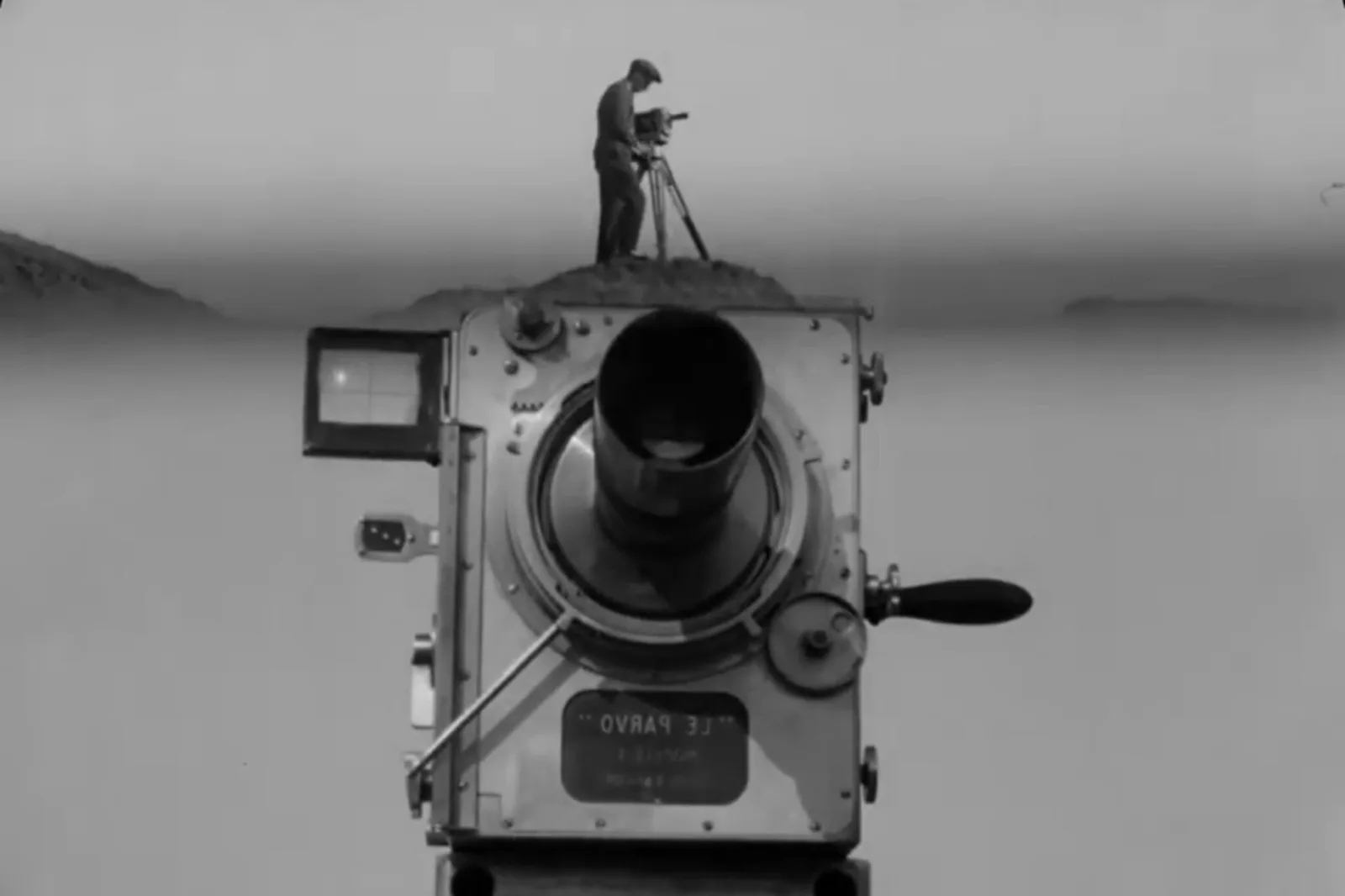Class Description
This course explores the early days of cinema and its deep connections to urban modernity. From the spectacle of moving images in bustling cityscapes to the birth of cinematic storytelling, we will examine how film shaped and was shaped by the modern world. Key topics include the cinema of attractions, the figure of the flâneur and the tramp, city symphonies, and colonial-era filmmaking. Through screenings, readings, and discussions, we will investigate early cinema’s role in constructing global narratives, from Hollywood’s silent comedies to Soviet montage, from Shanghai’s emerging film culture to Egypt’s unique cinematic history. Participants will gain a deeper appreciation of how early film technologies and aesthetics intersected with urban life, colonial encounters, and industrial modernity.
Karim Elhaies is a PhD candidate in Cinema Studies at New York University and co-founder of IDCtheory and Algarabia Language Coop. He holds an MA in Middle Eastern Studies from Columbia University. His dissertation studies the history, politics, and aesthetics of Egyptian Cinema with a special focus on the relationship between old and new genres.
All virtual classes are recorded and made available to participants registered in the class. These recordings are password-protected and available for up to two weeks after the class ends.
What to Expect
Format: Virtual
Class Capacity: 24
Class Style: Mix of lecture and discussion; participation encouraged
Materials List
Required
- Instructor-Distributed Materials
First Reading
- Watch before class:
- Selection of 1895 films of Louis and Auguste Lumière: Workers Leaving the Factory, The Arrival of a Train, and The Baby’s Meal (1min each)
- The Trip to the Moon (France, George Méliès,1902, 12min)
- Read before class (sent by instructor):
- Ben Singer, “Sensationalism and the World of Urban Modernity,” in Melodrama and Modernity: Early Sensational Cinema and its Contexts (New York: Columbia University Press, 2005), 59-99.
- Maxim Gorky, “Lumière Program at Nizhni-Novgorod” [1896], in Jay Leyda, Kino: A History of the Russian and Soviet Film (George Allen and Unwin: London, 1960), 407- 409.
- Anonymous writer in El Mou’ayed newspaper on 12 November 1986, translated in “Alexandria Why? The Beginnings of the Cinema Industry in Alexandria, AlexCinema,” https://www.bibalex.org/alexcinema/historical/beginnings.html
- Tom Gunning, “The Cinema of Attraction[s]: Early Film, Its Spectator and the Avant- Garde,” in The Cinema of Attractions Reloaded, ed. Wanda Strauven (Amsterdam: Amsterdam University Press, 2006), 381–388
- Optional readings:
- Lawrence Napper, Silent Cinema: Before the Pictures Got Small (New York, NY: Columbia University Press, 2019), 1-8.
- Charles Musser (2004), “At the Beginning: Motion picture production, representation and ideology at the Edison and Lumiere companies,” in The Silent Cinema Reader, ed. Lee Grieveson and Peter Krämer (London: Routledge, 2004), 15-28.
A Brief Syllabus
- When Cinema was New
- Industrial Cinema, Industrial City
- Soviet, German, and French Cinema/Cities
- Early Cinema and the Colonial Gaze
- Case Studies from the “Orient” I
- Case Studies from the “Orient” II
Cost and Registration
6 Sessions, $270 ($243 for Newberry members, seniors, and students). Learn about becoming a member.
We offer our classes at three different price options: Regular ($270), Community Supported ($250), and Sponsor ($290). Following the models of other institutions, we want to ensure that our classes are accessible to a wider audience while continuing to support our instructors. You may choose the price that best fits your situation when registering through Learning Stream.
To register multiple people for this class, please go through the course calendar in Learning Stream, our registration platform. When you select the course and register, you’ll be prompted to add another registrant.
RegisterSupport the Newberry
Your generosity is vital in keeping the library’s programs, exhibitions, and reading rooms free and accessible to everyone.
Make a GiftQuestions?
Call us at (312) 255-3700 or send us an email at adulteducation@newberry.org.
We are in office Tuesday through Thursday, 10 am–6 pm CT.
We are available by email Tuesday through Saturday.
